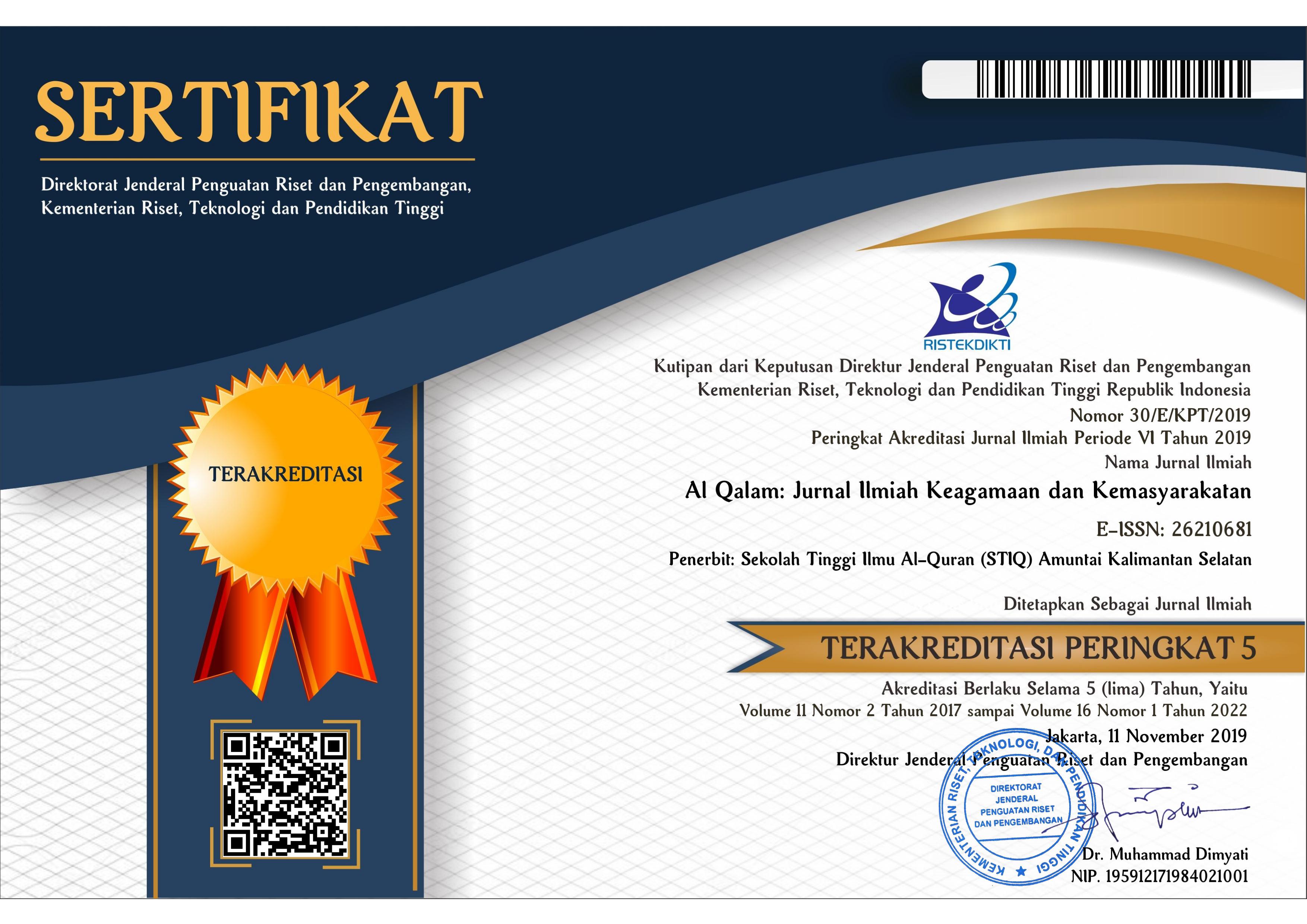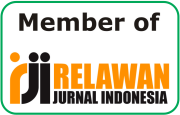DINAMIKA PERAN PENILAIAN DIRI DALAM MENINGKATKAN EMPLOYABILITY SISWA SMK
Abstract
Keywords
Full Text:
PDFReferences
Álvarez-González, Paula., María Jesús López-Miguens., and Gloria Caballero. “Perceived Employability in University Students: Developing an Integrated Model.” Career Development International 22, no. 3, (2017): 280-299. https://doi.org/10.1108/CDI-08-2016-0135.
Berntson, Erik., and Staffan Marklund. “The Relationship Between Perceived Employability and Subsequent Health.” Work & Stress 21, no. 3, (2007): 279-292. https://doi.org/10.1080/02678370701659215.
Bohlinger, Sandra., Ulrika Haake., Christian Helms Jørgensen., Hanna Toiviainen., and Andreas Wallo. Working and Learning in Times of Uncertainty: Challenges to Adult, Professional and Vocational Education. Rotterdam: Sense Publishers, 2015.
Bourke, Roseanna., and Mandia Mentis. “Self-assessment as a Process For Inclusion.” International Journal of Inclusive Education 17, no. 8, (2013): 854-867. https://doi.org/10.1080/13603116.2011.602288.
Brewer, Laura. Enhancing Youth Employability: What? Why? And How? Guide to Core Workskills. Geneva: International Labour Organization, 2013.
De Vos, Ans., Sara De Hauw., and Beatrice Van der Heijden. “Competency Development and Career Success: The Mediating Role of Employability.” Journal of Vocational Behavior 79, no. 2, (2011): 438-447. https://doi.org/10.1016/j.jvb.2011.05.010.
Dohmen, Dieter. Economics of Vocational Education and Training: Introduction and Overview. Berlin: Institute for Education and Socio-Economic Research and Consulting, 2007.
Froehlich, Dominik., Simon Beausaert., and Mien Segers. “Age, Employability and The Role of Learning Activities and Their Motivational Antecedents: A Conceptual Model.” The International Journal of Human Resource Management 26, no. 16, (2015): 2087-2101. https://doi.org/10.1080/09585192.2014.971846.
Fugate, Mel., and Blake Ashforth. “Employability: The Construct, Its Dimensions, and Applications.” Academy of Management Proceedings, no. 1, (2003): 1-6. https://doi.org/10.5465/ambpp.2003.13792496.
Fugate, Mel., Angelo Kinicki., and Blake Ashforth. “Employability: A Psycho-Social Construct, Its Dimensions, and Applications.” Journal of Vocational Behavior 65, no. 1, (2004): 14-38. https://doi.org/10.1016/j.jvb.2003.10.005.
Gu, Huimin., Raphael Kavanaugh., and Yu Cong. “Empirical Studies of Tourism Education in China.” Journal of Teaching in Travel & Tourism 7, no. 1, (2007): 3-24. https://doi.org/10.1300/J172v07n01_02.
Hartuti., Fatwa Tentama., Muhamad Hasan Abdillah., and Rifa Nur Alifah. “Physical Self, Social Self, Psychological Self, and Moral Self in Reflecting Self-Concept.” International Journal of Sciences: Basic and Applied Research 54, no. 1, (2020): 158-169.
Hattie, John., and Helen Timperley. “The power of feedback.” Review of Educational Research 77, no. 1, (2007): 81-112. https://doi.org/10.3102/003465430298487.
Hess, Narelle., Denise Jepsen., and Nicky Dries. “Career and Employer Change in The Age of The ‘Boundaryless’ Career.” Journal of Vocational Behavior 81, no. 2, (2012): 280-288. https://doi.org/10.1016/j.jvb.2011.10.009.
Hillage, Jim., and Emma Pollard. Employability: Developing a Framework for Policy Analysis. London: Department for Education and Employment, 1998.
Jameson, Stephanie. “A Case Study of International Hospitality Students Development of Employability Skills.” Tourism and Hospitality Research, (2008): 57-59.
Judge, Timothy. “Core Self-Evaluations and Work Success.” Current Directions in Psychological Science 18, no. 1, (2009): 58-62. https://doi.org/10.1111/j.1467-8721.2009.01606.x.
Judge, Timothy., and John Kammeyer-Mueller. “Implications of Core Self-Evaluations for a Changing Organizational Context.” Human Resource Management Review 21, no. 4, (2011): 331-341. https://doi.org/10.1016/j.hrmr.2010.10.003.
Kammeyer-Mueller, John., Timothy Judge., and Brent Scott. “The Role of Core Self-Evaluations in The Coping Process.” Journal of Applied Psychology 94, no. 1, (2009): 177–195. https://doi.org/10.1037/a0013214.
Kirby, Nicola., and Colleen Downs. “Self‐Assessment and The Disadvantaged Student: Potential for Encouraging Self‐Regulated Learning?.” Assessment & Evaluation in Higher Education 32, no. 4, (2007): 475-494. https://doi.org/10.1080/02602930600896464.
Lowden, Kevin., Stuart Hall., Dely Elliot., and Jon Lewin. Employers’ Perceptions of The Employability Skills of New Graduates. London: Edge Foundation, 2011.
MacDonald, Kath. “A Reflection on The Introduction of A Peer and Self Assessment Initiative.” Practice and Evidence of the Scholarship of Teaching and Learning in Higher Education 6, no. 1, (2011): 27-42.
Mcintosh, Steven. “Further Analysis of The Returns to Academic and Vocational Qualifications.” Oxford Bulletin of Economics and Statistics 68, no. 2, (2006): 225-251. https://doi.org/10.1111/j.1468-0084.2006.00160.x.
Mruk, Christopher. Self-Esteem and Positive Psychology: Research, Theory, and Practice. New York: Springer Publishing Company, 2013.
Onyishi, Ike., Ibeawuchi Enwereuzor., Afam Ituma., and Tochukwu Omenma., “The Mediating Role of Perceived Employability in The Relationship Between Core Self-Evaluations and Job Search Behaviour.” Career Development International 20, no. 6, (2015): 604-626. https://doi.org/10.1108/CDI-09-2014-0130.
Park, Guihyun., Aaron Schmidt., and Richard DeShon. “A Process Model of Goal Orientation and Feedback Seeking.” Human Performance 20, no. 2, (2007): 119-145. https://doi.org/10.1080/08959280701332042.
Qenani, Eivis., and Carol Sexton. “An Empirical Study of Self-Perceived Employability: Improving The Prospects for Student Employment Success in an Uncertain Environment.” Active Learning in Higher Education 1, no. 53, (2014): 199-213. https://doi.org/10.1177/1469787414544875.
Ronnås Per., and Leyla Shamchiyeva. Employment Diagnostic Analysis: Maluku, Indonesia. Geneva: International Labour Organization, 2011.
Sitzmann, Traci., Katherine Ely., Kenneth Brown., and Kristina Bauer. “Self-Assessment of Knowledge: A Cognitive Learning or Affective Measure?.” Academy of Management Learning & Education 9, no. 2, (2010): 169-191. https://doi.org/10.5465/amle.9.2.zqr169.
Stachowiak-Kudła, Monika., and Janusz Kudła. “Position, Possession or Process? Understanding Objective and Subjective Employability During University-to-Work Transitions.” Studies in Higher Education 42, no. 7, (2017): 1275-1291. https://doi.org/10.1080/03075079.2015.1091813.
Tentama, Fatwa., and Muhamad Hasan Abdillah. “Student Employability Examined from Academic Achievement and Self-Concept,” International Journal of Evaluation and Research in Education 8, no. 2, (2019): 243-248. https://doi.org/10.11591/ijere.v8i2.18128.
Tentama, Fatwa., and Wiwid Anindita. “Employability Scale: Construct Validity and Reliability.” International Journal of Scientific & Technology Research 9, no. 4, (2020): 3166- 3170.
Tentama, Fatwa., Subardjo., and Muhamad Hasan Abdillah. “Motivation to Learn and Social Support Determine Employability among Vocational High School Students.” International Journal of Evaluation and Research in Education 8, no. 2, (2019): 237-242. http://doi.org/10.11591/ijere.v8i2.18188.
Thijssen, Johannes., Beatrice Van der Heijden., and Beatrice Van der Heijden. “Toward The Employability Link Model: Current Employment Transition to Future Employment Perspectives.” Human Resource Development Review 7, no. 2, (2008): 165-183. https://doi.org/10.1177/1534484308314955.
Wang, Yao-Fen., and Chen-Tsang Tsai. “Employability of Hospitality Graduates: Student and Industry Perspectives.” Journal of Hospitality & Tourism Education 26, no. 3, (2014): 125-135. https://doi.org/10.1080/10963758.2014.935221.
Wride, Michael. Assessment: Guide to Self-Assessment. Dublin: University of Dublin, 2017.
Yorke, Mantz. Employability in Higher Education: What It Is – What It Is Not. York: The Higher Education Academy, 2006.
DOI: http://dx.doi.org/10.35931/aq.v15i1.451
Refbacks
- There are currently no refbacks.
Copyright (c) 2021 Al Qalam: Jurnal Ilmiah Keagamaan dan Kemasyarakatan
Al Qalam: Jurnal Ilmiah Keagamaan dan Kemasyarakatan
index by:
Publish by:
Sekolah Tinggi Ilmu Al-Qur'an Amuntai
Contact us:
Address: Jl. Rakha Pakapuran, Amuntai Utara
Kabupaten : Hulu Sungai Utara
Kode Pos : 71471
Provinsi : Kalimantan Selatan
Telephone : 085251613000
Email: hafizhihusinsungkar@gmail.com

This work is licensed under a Creative Commons Attribution 4.0 International License


